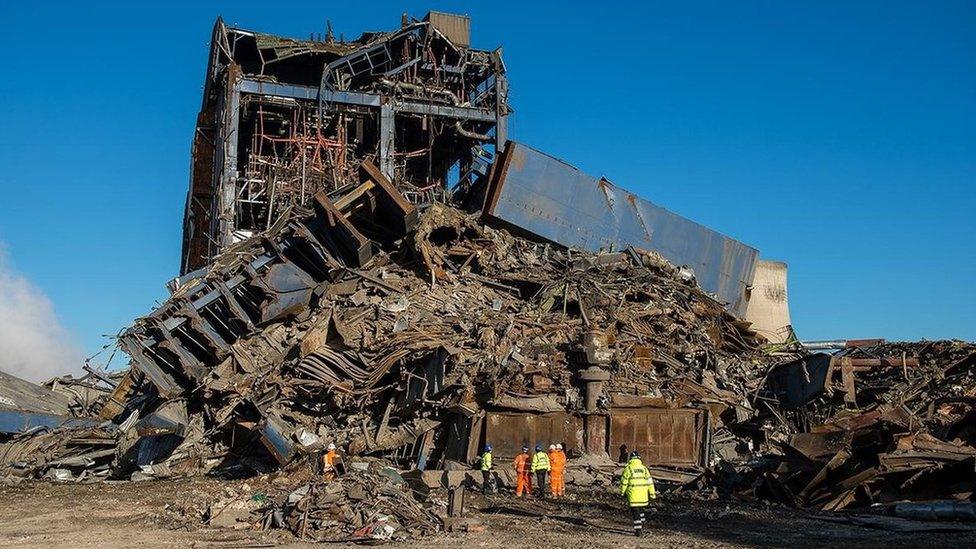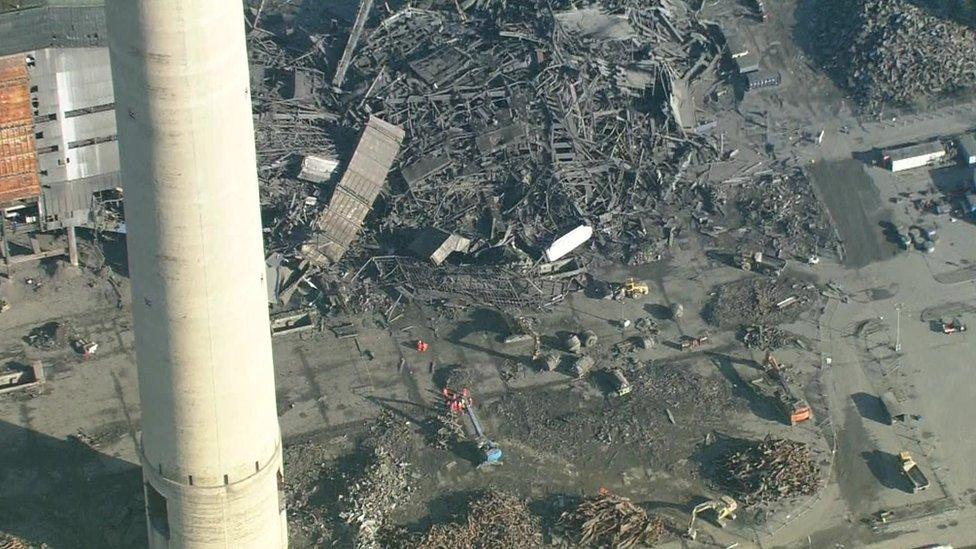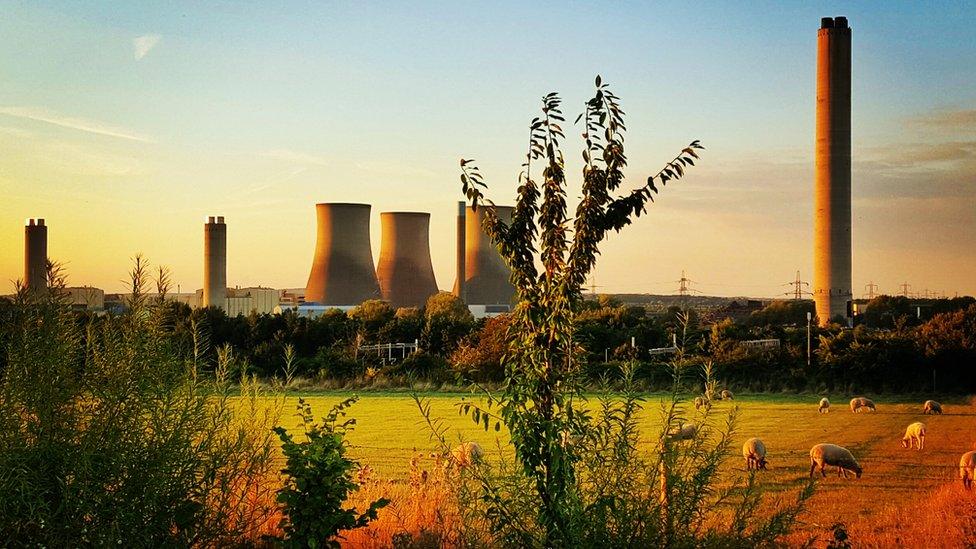Didcot Power Station inquiry examines tonnes of evidence in three years
- Published
Aerial footage shows the site of the collapse at Didcot
Three years on from the Didcot Power Station collapse that killed four workers an investigation has examined 870 tonnes of evidence, police said.
The disused coal-fired plant was set for demolition when its boiler house came down on 23 February 2016.
Thames Valley Police and the Health and Safety Executive (HSE) are investigating possible manslaughter and health and safety offences.
A spokesman said "detailed interviews" are planned with potential suspects.
Ken Cresswell, 57, John Shaw, 61, both from Rotherham, Michael Collings, 53, from Teesside, and Christopher Huxtable, 34, from Swansea, died in the collapse.
It took more than six months for their bodies to be recovered, prompting criticism from their families.

The Didcot Power Station boiler house was set for demolition when it collapsed
Assistant Chief Constable Jason Hogg said the force is continuing to examine "thousands of exhibits" and gather "complex technical data".
"We are doing everything in our power to obtain the answers that they so rightly deserve as quickly as we are able, balanced with our duty to explore all avenues," he said.
Mr Hogg added that tonnes of evidence has been taken to the HSE's science facility in Buxton, Derbyshire, for further forensic examination.

John Shaw, Christopher Huxtable, Michael Collings and Ken Cresswell (clockwise from top left) died in the collapse
Sarah Jardine, head of operations at the HSE, said its investigation would also seek to learn wider lessons for the industry "to help prevent anything like this happening again".
A spokeswoman for RWE Npower, which owns the site, said workers will lay flowers later in memory of the men who died.
The coal-fired Didcot A Power Station was turned off in 2013, after 43 years in service, and three cooling towers were demolished in 2014.
The demolition of the remainder of the power station is due to be completed by the end of the year.
The original plan was to have the site cleared by the end of 2017.

A major incident was declared after the boiler house collapsed
- Published20 July 2018

- Published31 January 2018

- Published22 May 2017

- Published23 February 2017
